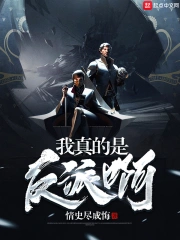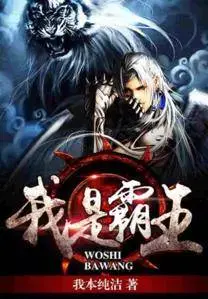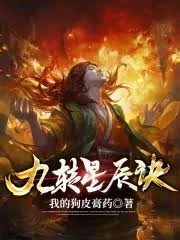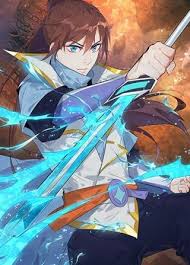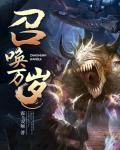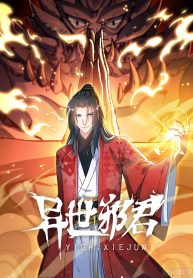The Story in 3 Sentences
A defeated villain, Xu Zimo, awakens in his youthful body, armed with the bitter memories of his annihilation at the hands of the destined hero, Chu Yang, and the utter ruin of his family and sect.
He discards the script of his doomed fate, resolving not merely to survive but to actively hunt his former killer, plunder his fortune, and dismantle the very concept of a “chosen one” by any means necessary.
His journey escalates from petty revenge within the Zhenwu Sacred Sect to a cosmic rebellion, where he challenges heavenly mandates and forges his own path to become the supreme Grand Emperor, rewriting the rules of the world itself.
Why It Stands Out
1. The Villain Who Writes His Own History
This isn’t a tale of redemption; it’s a manifesto of villainous ambition. Xu Zimo doesn’t seek to be good, he seeks to be the ultimate winner, the one who gets to define history. His goal is to seize the narrative from the heavens and the protagonist, making his ascent a thrilling act of defiance against a preordained cosmic order. He acts on his own impulses, sometimes cruel, sometimes unexpectedly noble, but always on his own terms, crafting a complex anti-hero who is impossible to ignore.
2. A World Built for the Antagonist
The novel shines by fleshing out its universe beyond the central conflict. It grants depth and mini-arcs to supporting characters, offering perspectives that enrich the main story rather than distract from it. This attention to detail suggests a meticulously planned narrative, with foreshadowing for events hundreds of chapters ahead, rewarding attentive readers and creating a world that feels vast and lived-in, where Xu Zimo’s actions have tangible, far-reaching consequences.
3. The Grand, Unapologetic Scale of Villainy
It embraces the core power fantasy of the genre without apology. Xu Zimo’s ambition is colossal: to kill the hero, loot his treasures, and ultimately ascend as the Grand Emperor of everything. The story delivers on this promise with escalating stakes and power levels, moving from sect politics to continental domination and finally to challenging the heavens themselves. It’s a cathartic, over-the-top journey of empowerment for the character traditionally destined to lose, executed with a satisfying, grandiose flair.
Characters That Leave a Mark
There’s Xu Qingshan – the Vice Sect Master of the Zhenwu Sacred Sect and Xu Zimo’s father, whose rise to power within the sect sets the initial stage for the family’s security and whose fate in the previous timeline fuels his son’s burning desire for vengeance and change.
You’ll meet Lan Ke’er, who stands as a significant figure in Xu Zimo’s life, characterized by her silver hair and enigmatic presence, offering a complex relationship that adds emotional weight and personal stakes to his otherwise ruthless journey.
And Lin Ruhu? They’re the one who has always been Xu Zimo’s loyal follower, a constant companion from childhood whose unwavering support provides a rare anchor of steadfast loyalty in the protagonist’s turbulent, self-serving world, often playing the crucial role of the dependable ally.
The Flaws Fans Debate
The sheer length and ongoing nature can feel daunting, with some readers finding the middle sections occasionally meandering as the world expands.
While the protagonist’s unapologetic villainy is the core appeal, his extreme actions and moral flexibility can be alienating for readers seeking a more traditionally heroic or even sympathetic lead.
Some fans debate whether the intricate web of side characters and their arcs, while enriching, occasionally slows the breakneck pace of Xu Zimo’s personal revenge and ascension plot.
Must-Experience Arcs
Ch. 1–50: Zhenwu Sacred Sect Foundations – Xu Zimo reawakens in his youth, assesses his dire future, and begins manipulating events within his father’s sect, setting his revenge against Chu Yang into motion while consolidating his own early power base.
Ch. 250–500: Conquest of the Middle Continent – Having outgrown his origins, Xu Zimo ventures to the ambitious cultivators’ dream, the Middle Continent, where he engages in larger-scale conflicts, challenges established powers, and truly begins his transformation from a vengeful youth to a formidable, continent-shaking force.
Ch. 1300–2500: Seizing the Heaven’s Will – In the late game, Xu Zimo’s ambitions transcend mortal realms as he directly confronts heavenly laws and cosmic entities, culminating in his ultimate goal to defy fate itself and ascend as the Grand Emperor, reshaping the fundamental order of the universe.
Killer Quotes
“Shouldn’t rebirth be the protagonist’s routine? But my setting is a villain!”
“People who seek revenge are the craziest.”
“I have personally witnessed the evolution of the River of Destiny.”
Cultural Impact
It has sparked widespread online debate about the definition of a “true villain,” challenging readers to reconsider morality in power fantasies.
Fans frequently meme Xu Zimo’s unapologetic declarations of villainy and his over-the-top ambition to become Grand Emperor, turning his catchphrases into community in-jokes.
The novel is consistently recommended within Xianxia/Xuanhuan circles as a top-tier example of the evil protagonist and revenge tropes, praised for its ambitious scope and intricate plotting.
Final Verdict
Start Here If You Want:
A cathartic power fantasy where the villain not only wins but becomes the ultimate authority.
A complex, unapologetically evil protagonist who drives the entire narrative with sheer force of will.
A grand, escalating journey from personal revenge to cosmic rebellion, packed with action and world-building.
Study If You Love:
Exploring the narrative potential of the antagonist as the central, driving force in a hero’s journey.
The intricate construction of a cultivation world where politics, fate, and personal ambition collide on a massive scale.
Deconstructions of xianxia tropes, particularly the “chosen one” protagonist and the predestined role of the villain.
Avoid If You Prefer:
Stories with morally unambiguous heroes or protagonists seeking redemption.
Tightly paced narratives; the novel’s immense length and detailed side arcs require a significant time investment.
Characters whose actions are consistently guided by altruism or traditional heroic virtues.
